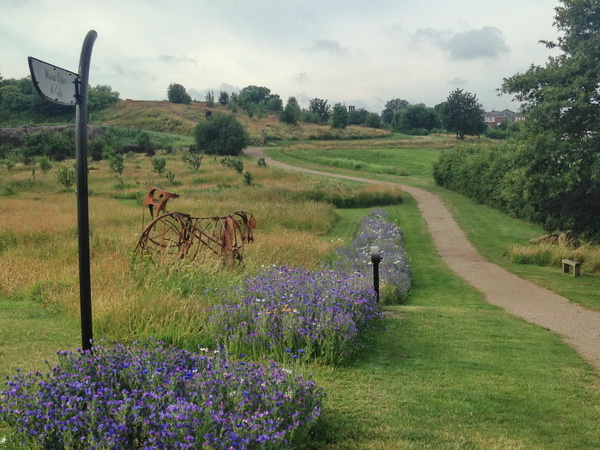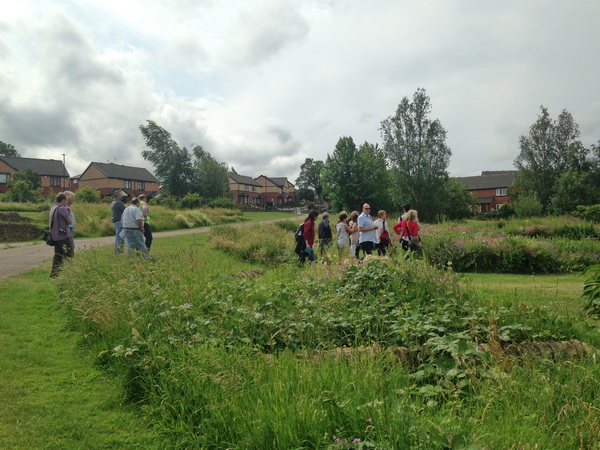
What a success story it has been! Using these 'real' trials, the 'Pictorial Meadows' seed mixes have been refined and developed over the years to create long lasting, low maintenance, colourful meadow displays. Local authorities and organisations nationally, and internationally, have changed previously a sad grass verge, dull roundabout, or demolition waste into wonderful displays which have become popular with local residents. It was interesting to see the experimental meadows which were trials for the fantastic display at the Olympic Park, which 2B visited in September 2012. (see blog post ‘Team 2B goes to the Paralympics: ‘Proud, inspired, moved’).

Photo; ‘Blue Haze’ meadow at Manor Lodge, a trial for the Olympic meadows
As Landscape Architects who are concerned with sustainable drainage systems (SuDS), biodiversity and beauty, it was a pleasure to spend a day learning from Green Estate about their research into planting mixes and appropriate maintenance techniques.
As we are increasingly involved in design for sustainable drainage and flood prevention, the SuDS scheme at Manor Fields Park was of particular interest. Sue France explained that engineering mistakes had meant £10m would have needed to implement a traditional drainage scheme on the site. However, by using sustainable drainage systems, the drainage scheme cost less than a tenth of the traditional approach. This allowed the opportunity for the provision of a dowry for a maintenance budget. Now, after nine years, as well as looking great, being biodiverse, and preventing flooding downstream, the project has saved the Council millions of pounds. This reinforces the additional benefits of a good SuDS scheme.

Photo; The group touring the SuDS swales and meadows at Manor Fields Park
by Amanda McDermott CMLI